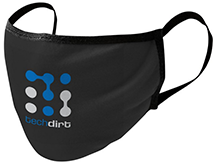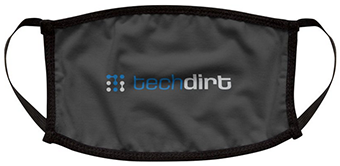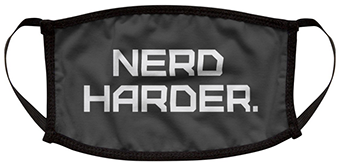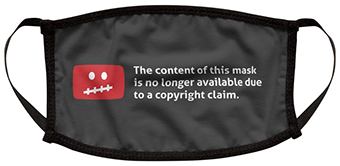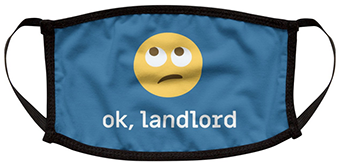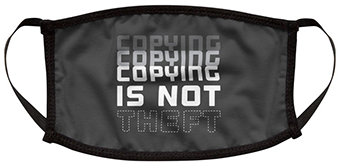from the because-intellectual-property dept
Politics and intellectual property always get weird and silly, often during Presidential election season. Following on last year's insanity in which Hillary Clinton's PAC tried to
take down parodies on CafePress and Zazzle, presidential candidate Ben Carson has apparently decided
no one should possibly be allowed to create any kind of Ben Carson merchandise, except for the Ben Carson PAC, and he's decided to list out every possible intellectual property argument he can think of: copyright, trademark, privacy rights. I'm almost surprised he didn't find a way to include patents too.
“The aforementioned action is a violation of the Digital Millennium Copyright Act, The Lanham Act, Federal Trademark Infringement, Federal Copyright Infringement, state misappropriation and privacy laws.”
Except none of that is true. Thankfully, CafePress has been working with Paul Levy from Public Citizen on these issues for many years, and he has
sent a reply to K. Clyde Vanel, the lawyer representing the Carson campaign in which he systematically dismantles the arguments made in the letter. As with most letters from Paul Levy (and, yes, he's written one or two on our behalf in the past), it's a work of art. The summary line:
The notion that expressing views about Carson's candidacy violates any of his rights is
simply absurd. It is shocking that a lawyer whose web site touts his expertise in intellectual property
law would sign his name to such a communication.
Then, let's go one by one through each of the claims to show just how ridiculous they each are. We'll start with trademark. Levy points out that it's true that the "Ben Carson for President 2016" organization has applied for a trademark on a logo for the campaign, but the items they're looking to get taken down do not include that logo.
At most, the items display the phrase "Ben Carson for President 2016," often appearing in
the patriotic colors of red, white and blue. Many of them simply use Carson's name, or just his given
name or his profession. You cannot use trademark theories to ride roughshod over members of the
American public who either share your clients' views and favor Carson's candidacy, or for that
matter disagree with their views and oppose Carson's candidacy. They can hardly express their
views in that respect without identifying the candidacy about which they wish to speak.
Oh, and you know how SuperPACs need to be entirely separate and independent from campaigns? Well, as Levy notes, if Carson's lawyer's theory is accurate, no SuperPAC can support Carson without violating his trademark:
Moreover,
it is very common for people to express their views about presidential candidacies, completely
independent of the campaign; this is so common that it defies belief that a reasonably careful
consumer would believe that a shirt or bumper sticker advocating your client's election necessarily
came from the campaign itself. Indeed, the Super PAC "2016 Committee" carries various wares that
display the phrase "Ben Carson for President 2016." E.g., http://store2016committee.org/pins-stickers-and-magnets/. Super PACs have to be independent committees, and cannot coordinate with the official campaign. I assume you are not going to argue that 2016 Committee's use might
confuse consumers into believing that Carson or his campaign committee is the sponsor of the PAC.
So I doubt that you have any realistic chance of arguing that the items carried by CafePress are likely
to cause confusion, a key element of a trademark infringement claim. And because your state law
claims regarding misappropriation of name or likeness also require a showing that the use implies
that the plaintiff endorsed or authorized the product in question, your inability to show lack of likely
confusion condemns those claims as well.
Yes we're this far and we haven't even discussed fair use or that whole First Amendment thing. No worries, Levy's got that covered as well:
More important are the issues of fair use and the First Amendment, which apply equally to
your purported misappropriation of name and likeness claims as well as to your trademark claims.
Speech about a candidate for president is squarely protected by the First Amendment, hence any
effort to use trademark law to quash such uses is highly suspect. Although CafePress users' products
are sold, their contents are noncommercial speech, which qualifies for full First Amendment
protection.
Okay, next up: privacy rights. Yes, the guy running for President is claiming that T-shirts supporting his campaign for President violate his privacy rights. I'm almost surprised Levy didn't just respond with "Really?":
Your reference to a purported invasion of Carson's privacy is particularly foolish. Given the
intense scrutiny that presidential candidates receive in this day and age, it is a matter of some doubt
whether any statement about a presidential candidate, especially one who now stands second in the
polls of the Republican nomination, could constitute an invasion of privacy, no matter how personal.
But there is nothing "private" in the expression contained on the products that CafePress carries--
they are all specifically about the Carson candidacy. That candidacy is certainly not private.
And then the copyright claims. Those should be pretty quick to take care of, because (as you guessed) everything about them is bullshit:
Finally, you make a claim of copyright infringement and claim that the DMCA has been
violated. But the DMCA imposes an obligation on the hosts of interactive web sites like
CafePress.com only once the purported copyright holder has scrupulously followed the formalities
required by 17 U.S.C. §512(c)(3)(A); your email does not meet those requirements. One important
flaw in the copyright claim is that you do not identify the specific works that infringe your clients'
copyrights, and looking through the various items displayed at http://www.cafepress.com/+ben+carson+gifts,
I do not see any materials that are likely to infringe
copyrights that your clients own. Most of the items contain some variation of the phrase "Ben
Carson for President 2016." That expression lacks sufficient originality for copyright protection.
Indeed, if the phrase were copyrightable, your clients might not be the owners of the copyright,
because they might not have been the first to fix it in a tangible medium of expression. It is quite
possible that some supporter hoping to encourage Carson to run may have written it down before
Carson did. That person would own the copyright, if the phrase were copyrightable, and your clients
would be among the infringers.
CafePress takes its copyright obligations very seriously. Therefore, I invite you to specify,
in detail, the specific works in which your clients claim copyright, so that we can assess whether the
inclusion of any copyrighted content in its users' designs might be fair use. Certainly, if you identify
any material that genuinely infringes a valid copyright that your clients own, CafePress will take it
down.
In closing, Levy points out that way back in 2008, he helped CafePress sue the Republican National Committee for
threatening CafePress in a similar manner.
During the 2008 election, the Republican National Committee sent CafePress a
series of threats to sue for trademark infringement because CafePress users were having shirts and
other items printed with designs expressing views about the Republican Party or various candidates,
using the acronym GOP or images of elephants. CafePress eventually had to sue the RNC for a
declaratory judgment of non-infringement, and the result was a great deal of embarrassment for the
Republican Party; the RNC then retracted its threat, subject to a request that CafePress direct users
who, without any other expressive design elements, displayed a particular image of an elephant that
the RNC had trademarked, to ask the RNC for permission (the RNC indicated that consent would
readily be given).
I trust that Carson will want to save a similar embarrassment for his political campaign. I
hope you will issue a prompt retraction of your demand.
Intellectual property sure makes candidates and their lawyers do weird things.
Filed Under: ben carlson, copyright, dmca, k. clyde vanel, merchandise, paul levy, presidential campaigns, privacy rights, publicity rights, trademark
Companies: cafepress

